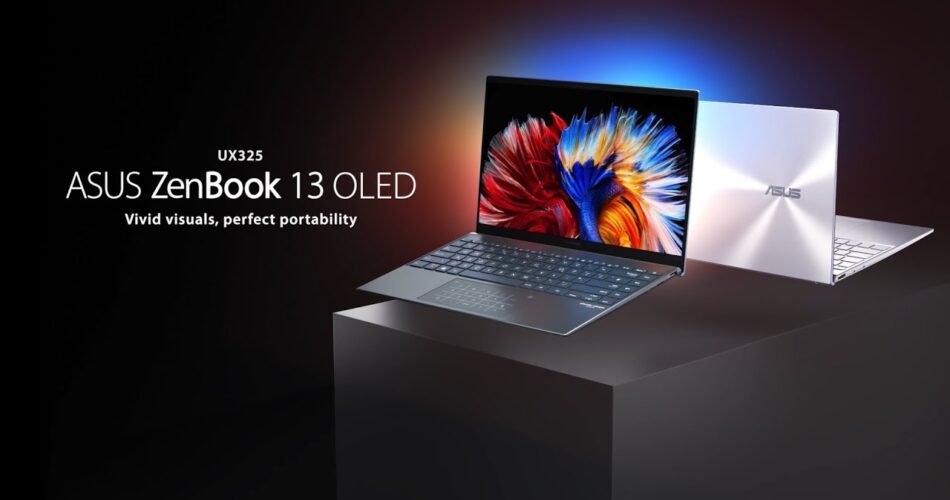Asus ZenBook 13 is a compact 13-inch laptop with an excellent OLED display and it’s a great device for work. Despite its small size, it doesn’t lack performance, since with the AMD Ryzen 7 5800U, a native octa-core SoC runs the slim device. Our detailed review with numerous measurements and benchmarks examines what performance you can really expect and whether the OLED display can fulfill our expectations.

Case
Asus uses high-quality materials in the ZenBoook 13. To a large extent, it is made from aluminum, which brings some good stiffness to the case. The workmanship offers no reason for complaint, and the haptics of the surface also have a high-quality feel and offer a good grip. Fortunately, the surface does not show fingerprints easily either. As already mentioned, the stiffness of the base unit and display lid is good, even though the center of the base can be pressed down slightly in our pressure test, but this not very pronounced.

Display
The built-in display is a 16:9 OLED panel with 1920 x 1080 pixels (FHD) and a 13.3-inch diagonal, resulting in a pixel density of 166 PPI. However, with an average brightness of 370 cd/m², our ZenBook only places in the middle of the field of the comparison devices. On the other hand, the very low black value reflects the strengths of the OLED technology, also resulting in a very good contrast ratio. In addition, the so-called “clouding” is not an issue, since the display does without the large-area background illumination. To prevent burning-in effects, a refresh/PWM approach is used. At full brightness, we measured a frequency of 60 Hz.
Performance- AMD Ryzen 7 APU
For a subnotebook in the 13-inch format, the Asus ZenBook 13 UM325S offers very good equipment. With the AMD Ryzen 7 5800U, the laptop uses an excellent processor. In addition, the ZenBook 13 is also available with the slightly smaller Ryzen 5. Asus is also not stingy with the working memory and the SSD, and with 16 GB of DDR4 RAM and a 1-TB SSD, you are well equipped for the future as well. And finally, the integrated AMD Radeon RX Vega 8 also ensures a solid 3D performance.

The small Asus laptop is run by the AMD Ryzen 7 5800U. With its 8 cores and 16 Threads, the SoC turns the inconspicuous laptop into a real workhorse, allowing you to accomplish your work effortlessly. The basic clock speed is 1.9 GHz, which increases up to 4.4 GHz in Turbo mode. In the comparison, the AMD Ryzen 7 5800U delivers a very good performance that is also able to keep up with the Intel Core i7-1165G7 in the single-core benchmarks. As expected, the AMD Ryzen 7 5800U performs better in the multi-thread tests, where the octa-core processor can make full use of its potential.
System Performance
In the PCMark 10 test, our Asus ZenBook 13 UM325S achieves very good results throughout, and the competitors are left behind most of the time. Only the Huawei MateBook X Pro 2021 is able to keep up at times, while the performance of the ZenBook 13 UM325S remains stable across the measurements in all the disciplines.

